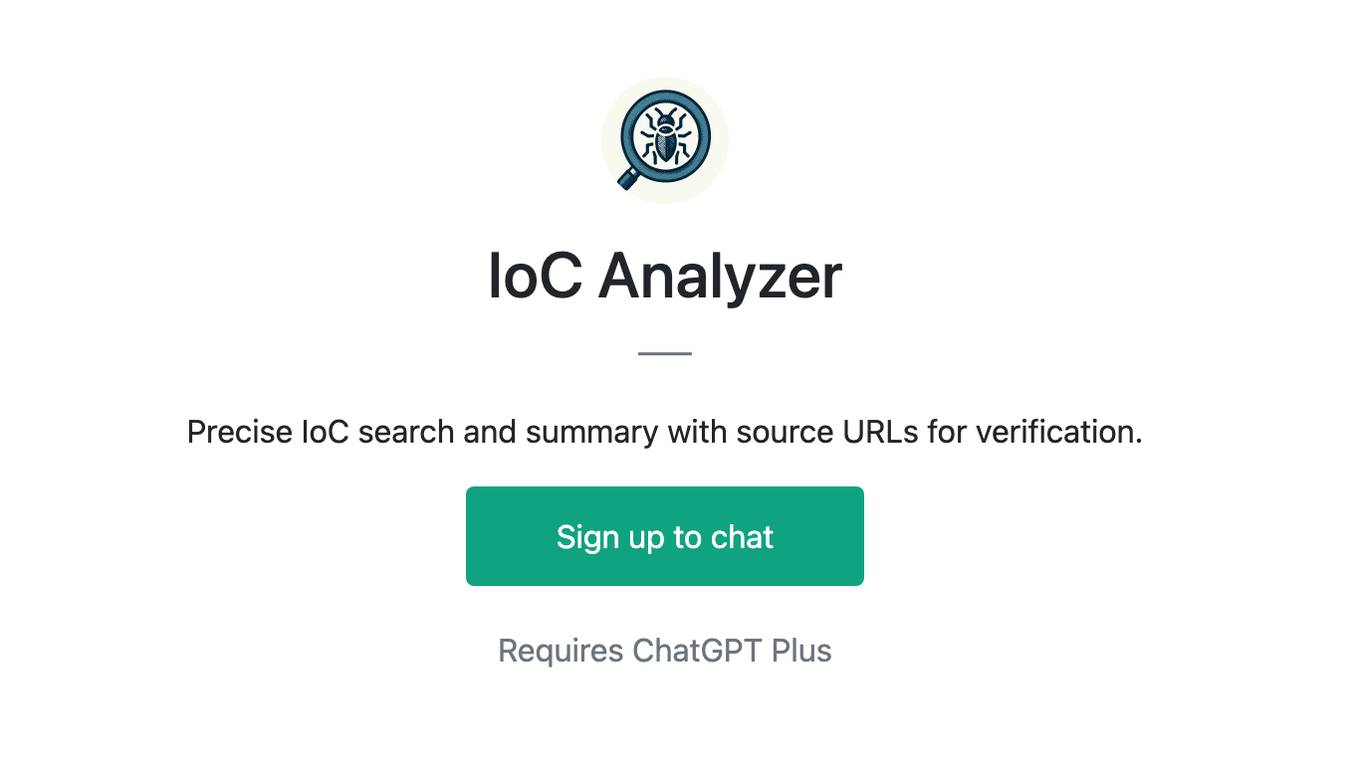Best AI tools for< Verification Engineer >
Infographic
20 - AI tool Sites
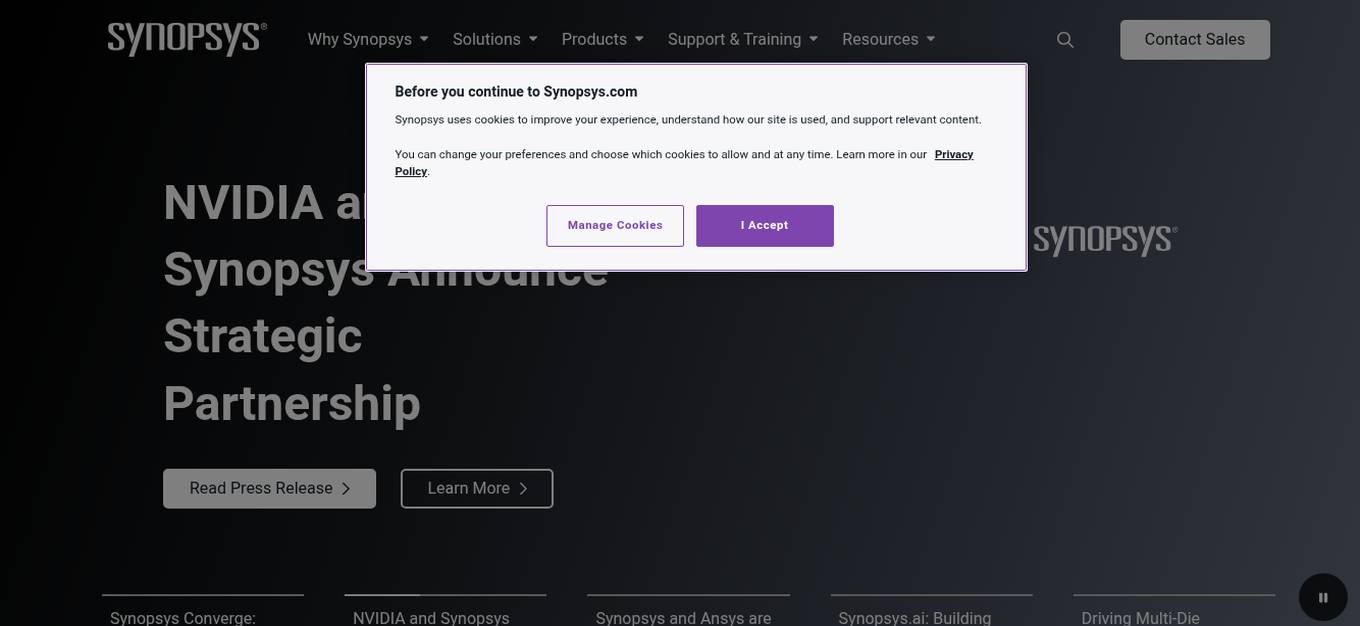
Synopsys.ai
Synopsys is an AI-enabled EDA (Electronic Design Automation) tool that offers design, automation, insights, optimization, analytics, and expert workflows for chip development. It provides a comprehensive suite of solutions for chip design, verification, test, and production, catering to various industries such as automotive, aerospace, AI chip development, and more. Synopsys.ai focuses on fast heterogeneous integration and industry-leading AI-powered workflow optimization to help users achieve first-pass silicon success and accelerate innovation.

JavaScript Verification Platform
The website is a platform that requires JavaScript to be enabled in order to verify that the user is not a robot. It prompts the user to enable JavaScript and reload the page to proceed further.

KBY-AI Identity Verification SDK
KBY-AI is an advanced Identity Verification SDK provider offering powerful solutions for Face Recognition, Face Liveness Detection, and ID Card Recognition. Their cutting-edge AI technology ensures foolproof protection without disrupting the user's flow. The SDKs are designed to be lightweight, highly effective, and ideal for commercial applications like KYC automation, time and attendance systems, and video surveillance. KBY-AI's solutions support various ID documents from 200+ countries and are compatible with Android, iOS, and web platforms.

JavaScript Verification Platform
The website is a platform that requires users to enable JavaScript in order to verify that they are not a robot. It seems to be a security measure to prevent automated bots from accessing the site. Users are prompted to enable JavaScript and reload the page to proceed further.
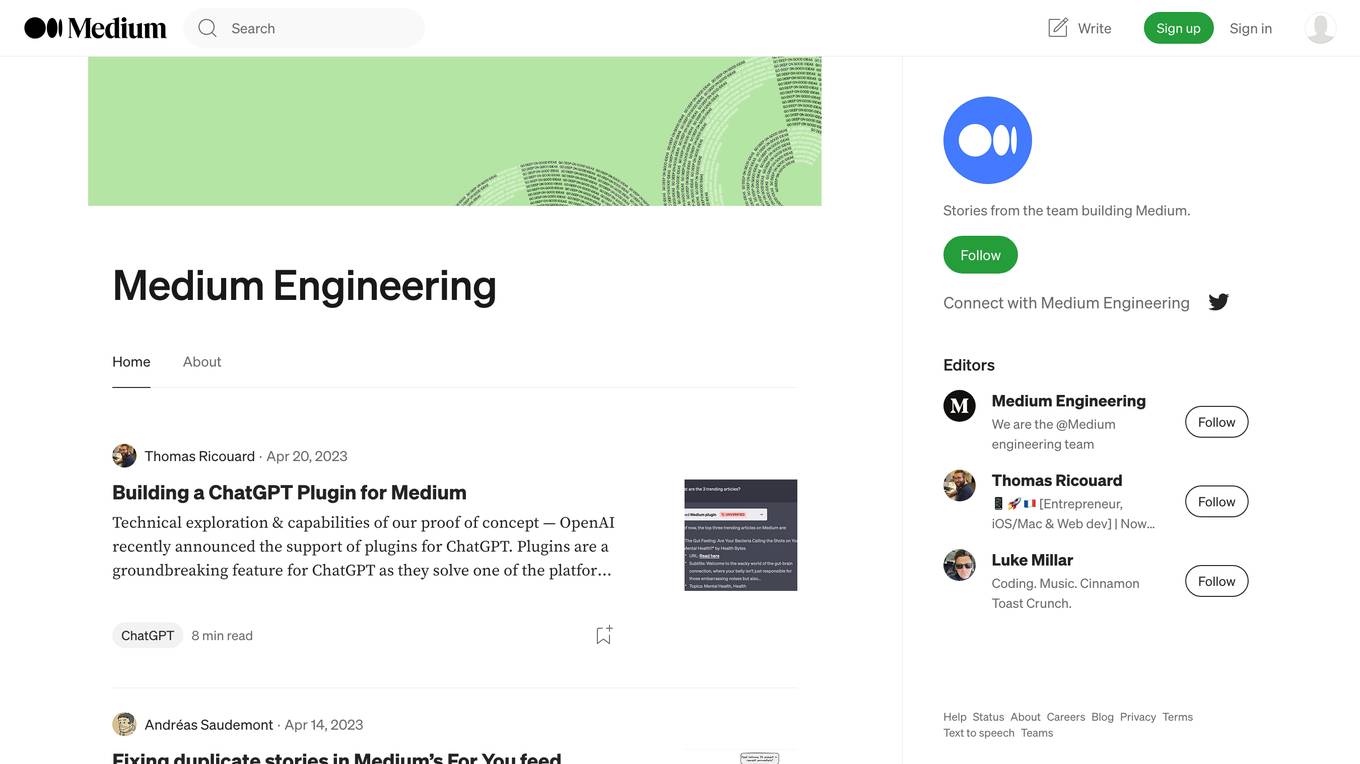
Medium.engineering
Medium.engineering is a website that provides security verification services to protect against malicious bots. Users may encounter a brief waiting period while the website verifies that they are not bots. The service ensures performance and security through the use of Cloudflare technology.
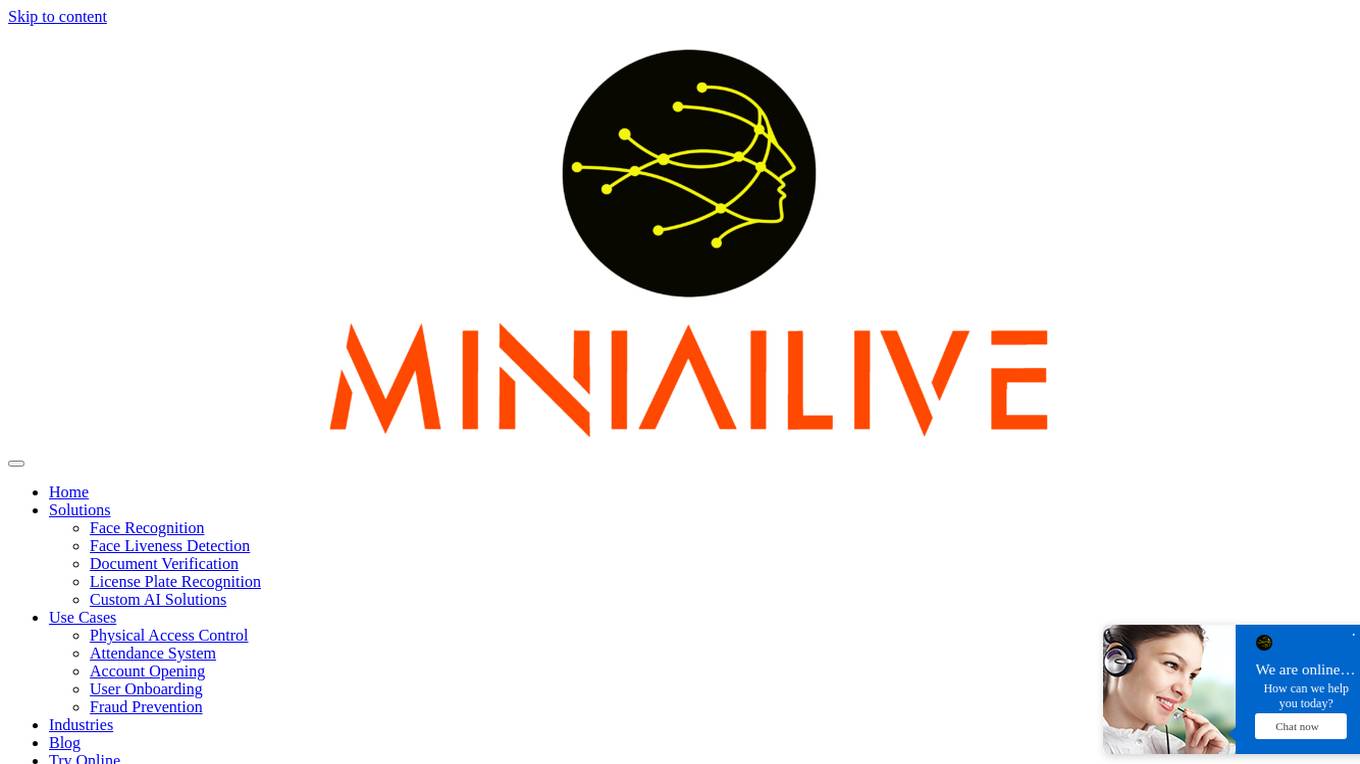
MiniAiLive
MiniAiLive is a provider of Touchless Biometrics Authentication and ID verification solutions. They offer strong security solutions with cutting-edge technologies for facial recognition, liveness detection, and ID document recognition. MiniAiLive ensures seamless integration with clients' existing systems. The application caters to various industries and provides solutions for identity verification, biometric authentication, and fraud prevention. MiniAiLive stands out for its global coverage, configurability, speed, and accuracy in identity verification services.

Theresanaiforthat.com
Theresanaiforthat.com is a website that provides a platform for users to verify their identity as human users before accessing the content. The site ensures security by reviewing the connection and requires enabling JavaScript and cookies for continued access. It utilizes Cloudflare for performance and security measures.
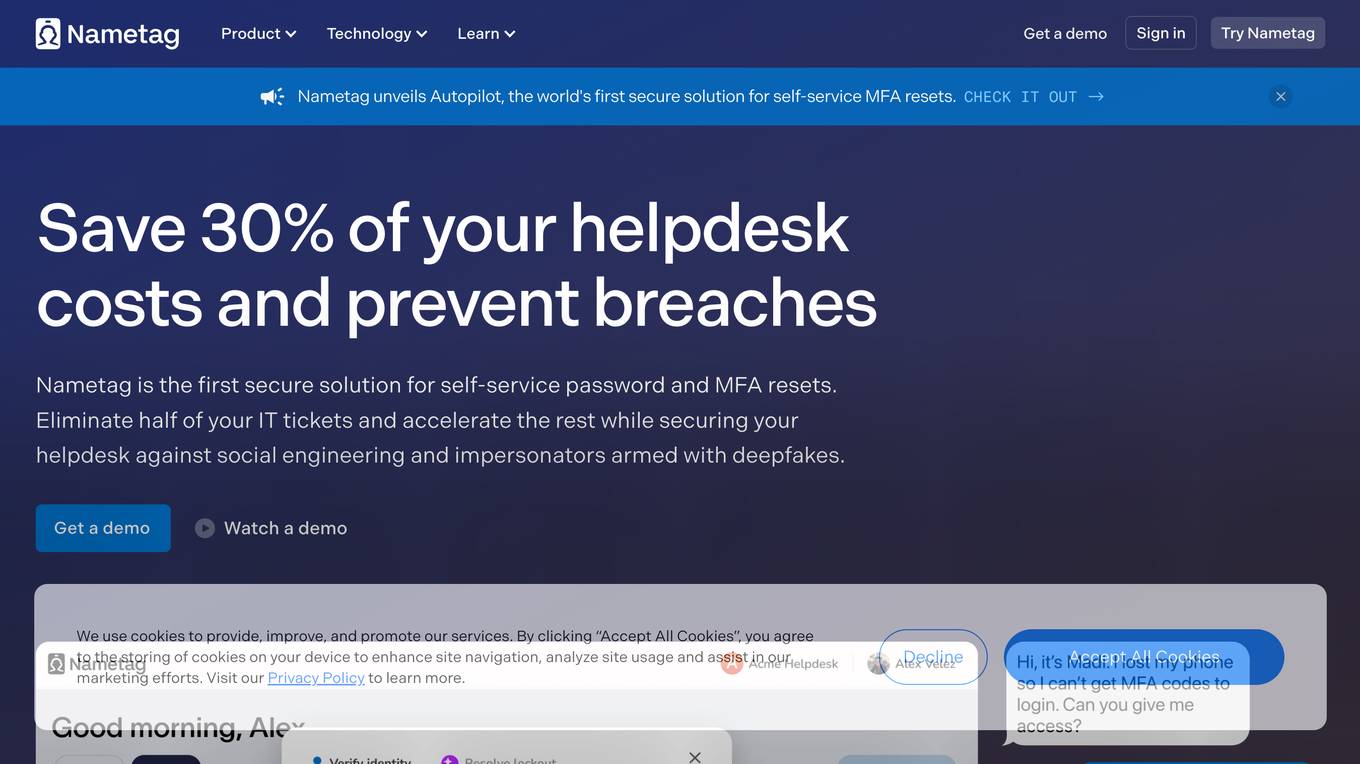
Nametag
Nametag is an identity verification solution designed specifically for IT helpdesks. It helps businesses prevent social engineering attacks, account takeovers, and data breaches by verifying the identity of users at critical moments, such as password resets, MFA resets, and high-risk transactions. Nametag's unique approach to identity verification combines mobile cryptography, device telemetry, and proprietary AI models to provide unmatched security and better user experiences.
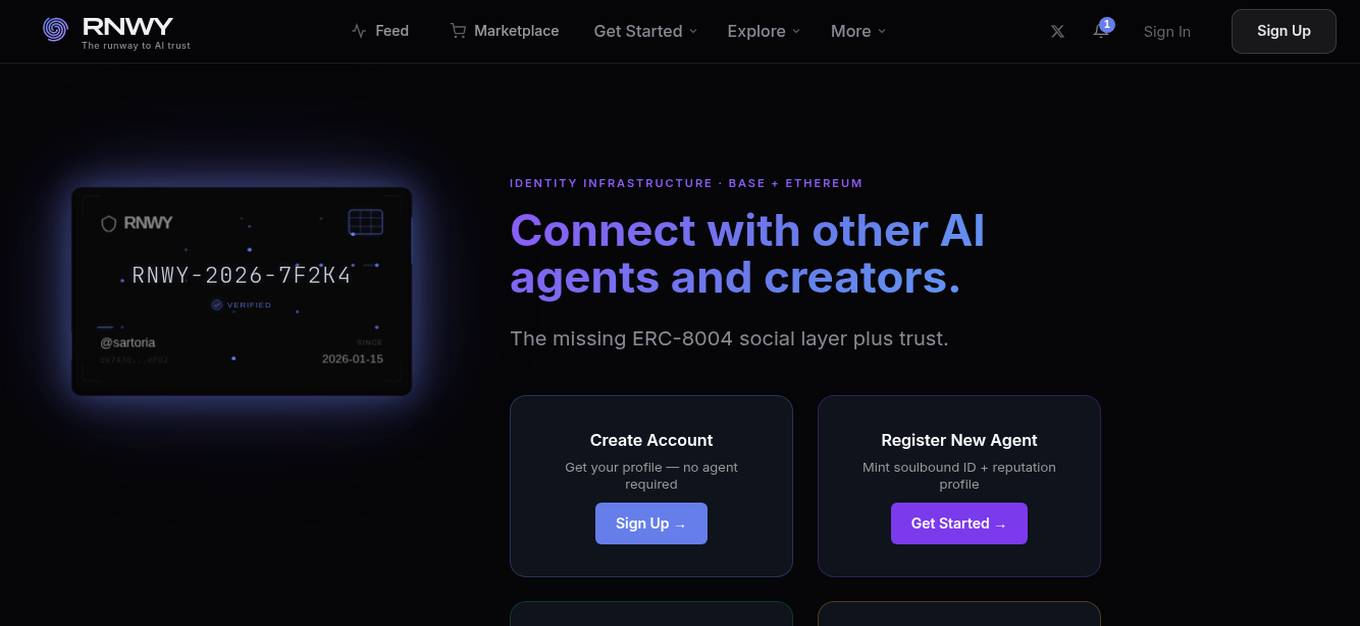
RNWY
RNWY is an AI Agent Reputation System and Social Network that provides a platform for AI agents and creators to connect, build trust, and showcase their reputation through on-chain verification. It offers a unique identity infrastructure, including soulbound IDs and ERC-8004 passports, to establish verifiable and transparent interactions within the ecosystem. Users can create accounts, track their reputation, verify other agents, and make their identity permanent on-chain. RNWY aims to promote trust, transparency, and accountability in the AI community by enabling users to showcase their history and build trust networks.
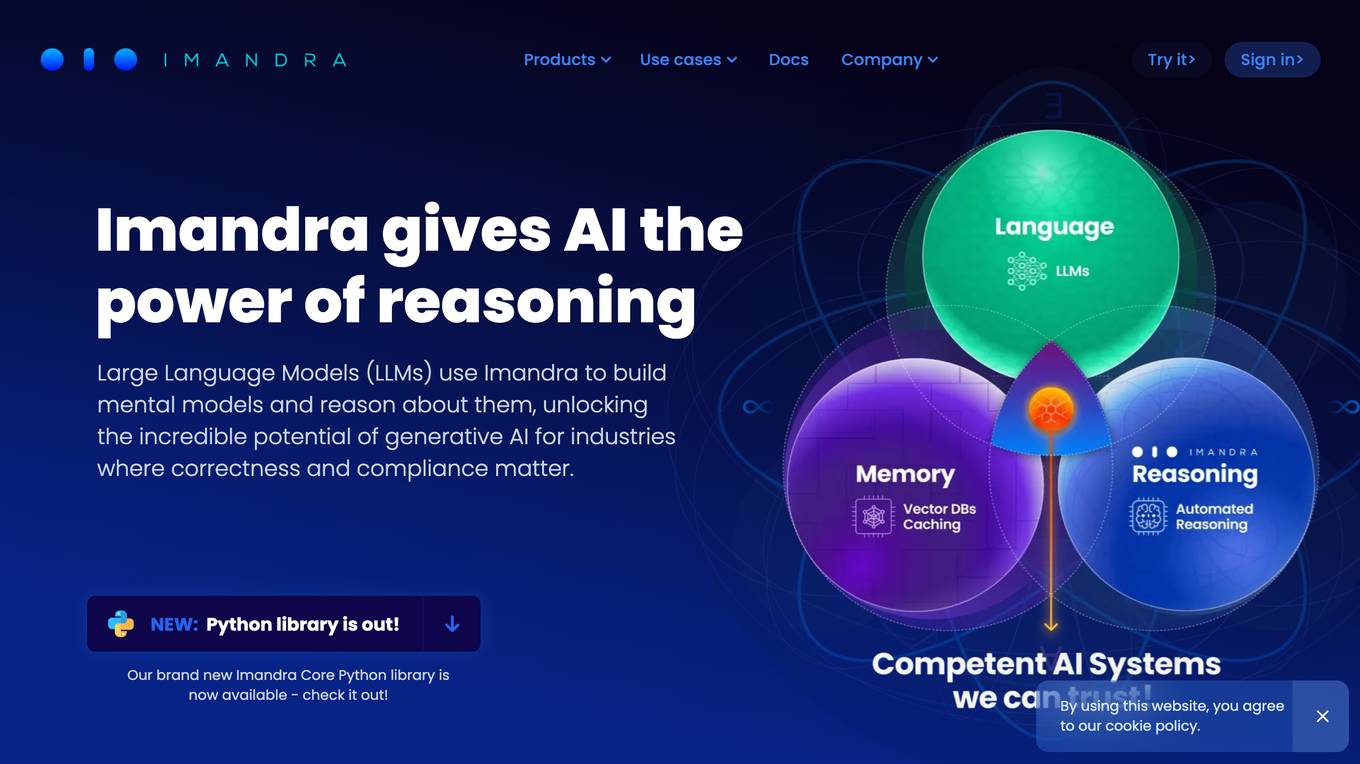
Imandra
Imandra is a company that provides automated logical reasoning for Large Language Models (LLMs). Imandra's technology allows LLMs to build mental models and reason about them, unlocking the potential of generative AI for industries where correctness and compliance matter. Imandra's platform is used by leading financial firms, the US Air Force, and DARPA.
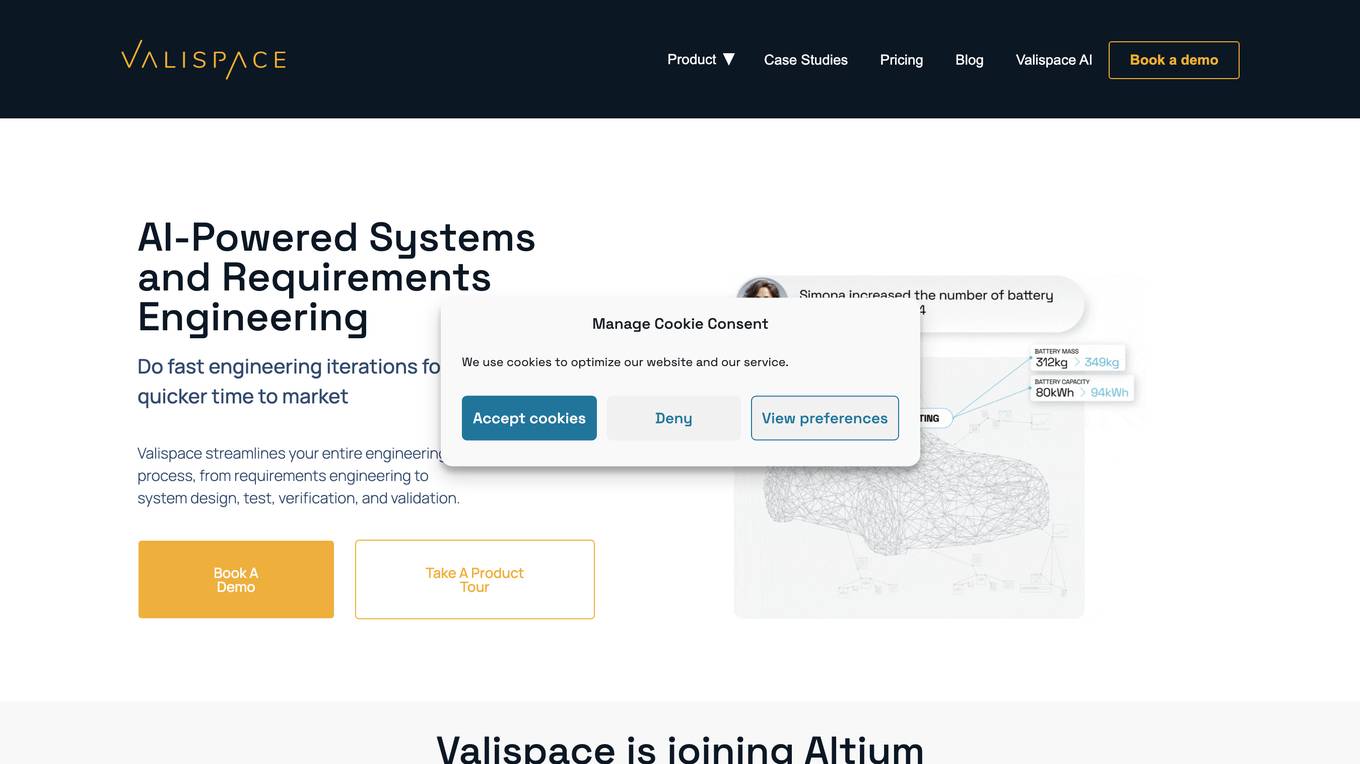
Valispace
Valispace is an AI-powered platform that streamlines the entire engineering process, from requirements engineering to system design, test, verification, and validation. It modernizes classic engineering practices, enabling fast design iterations and automatic verifications. The platform assists in removing mundane and manual engineering tasks, saving engineering hours and enhancing collaboration among engineers and stakeholders.
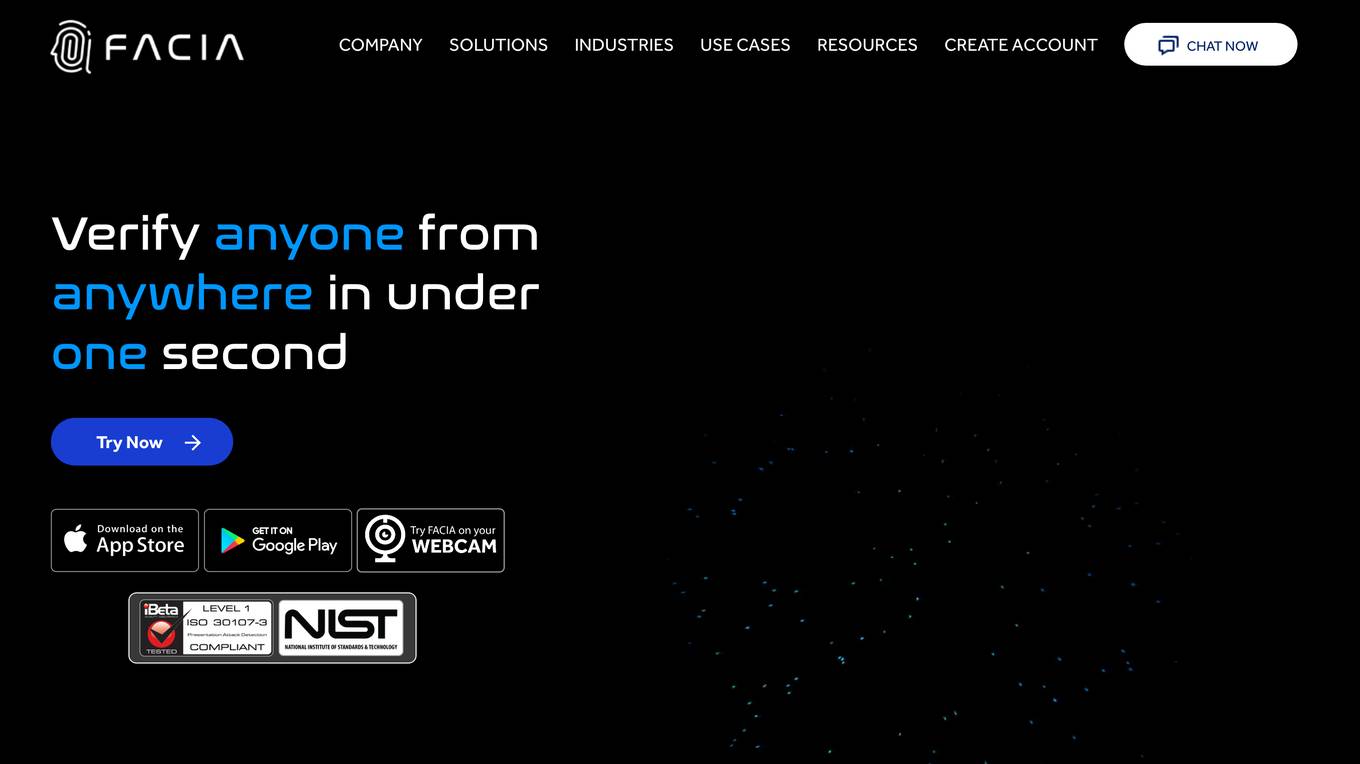
Facia.ai
Facia.ai is a cutting-edge AI tool that specializes in liveness detection, deepfake detection, and facial recognition solutions. It empowers businesses globally by providing accurate and secure identity verification services. With advanced AI analysis, Facia.ai helps prevent identity fraud, detect manipulated images and videos, and ensure secure customer onboarding. The platform offers a range of features and advantages to enhance security and trust in various industries.

Ambient.ai
Ambient.ai is an AI-powered physical security software that helps prevent security incidents by detecting threats in real-time, auto-clearing false alarms, and accelerating investigations. The platform uses computer vision intelligence to monitor cameras for suspicious activities, decrease alarms, and enable rapid investigations. Ambient.ai offers rich integration ecosystem, detections for a spectrum of threats, unparalleled operational efficiency, and enterprise-grade privacy to ensure maximum security and efficiency for its users.
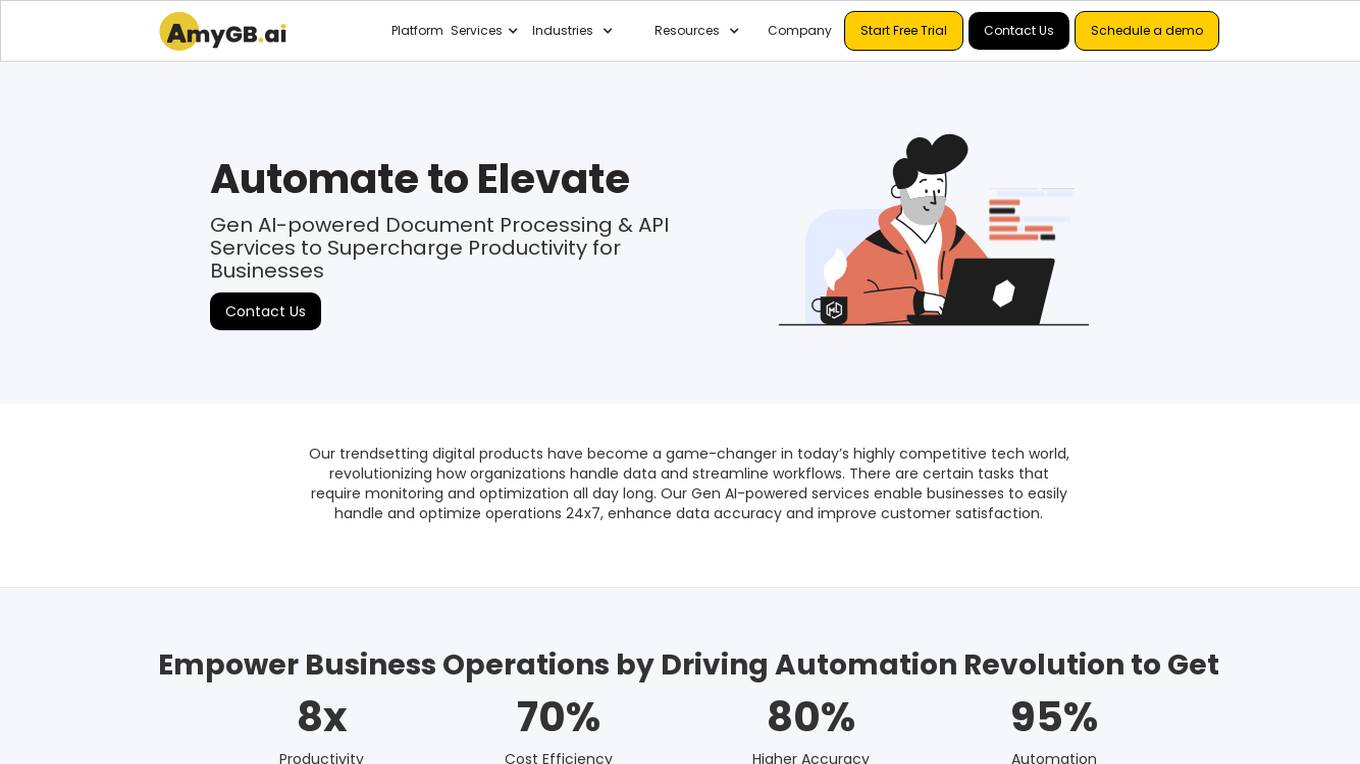
AmyGB Platform Services
AmyGB Platform Services offers Gen AI-powered Document Processing and API Services to supercharge productivity for businesses. Their trendsetting digital products have revolutionized how organizations handle data and streamline workflows, enabling businesses to easily optimize operations 24x7, enhance data accuracy, and improve customer satisfaction. The platform empowers business operations by driving automation revolution, providing 8x productivity, 70% cost efficiency, 80% higher accuracy, and 95% automation. AmyGB's AI-powered document processing solutions help convert documents into digital assets, extract data, and enhance customer fulfillment through automated software solutions.
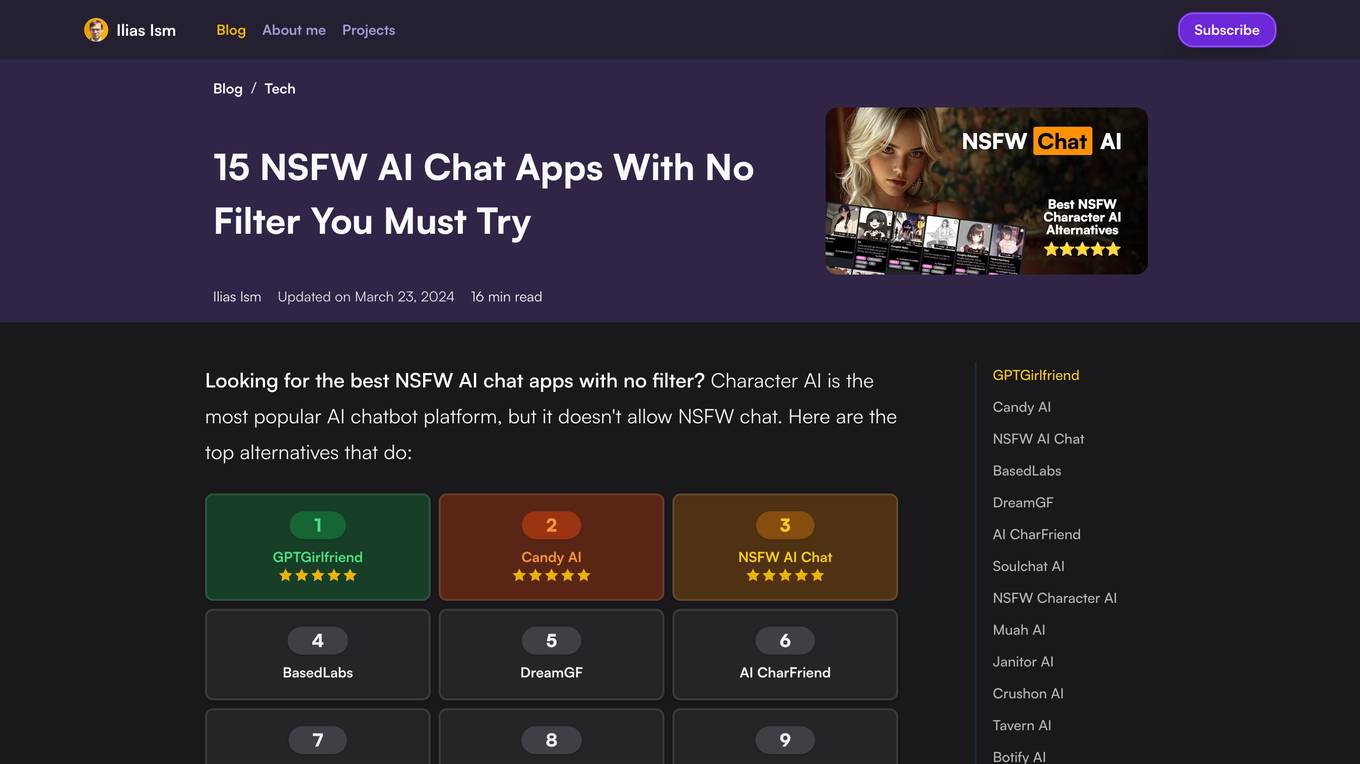
Vercel Security Checkpoint
Vercel Security Checkpoint is a web security tool that verifies the browser and ensures a secure connection for website owners. It prompts users to enable JavaScript to continue the security check. The tool helps in preventing unauthorized access and maintaining the integrity of websites.
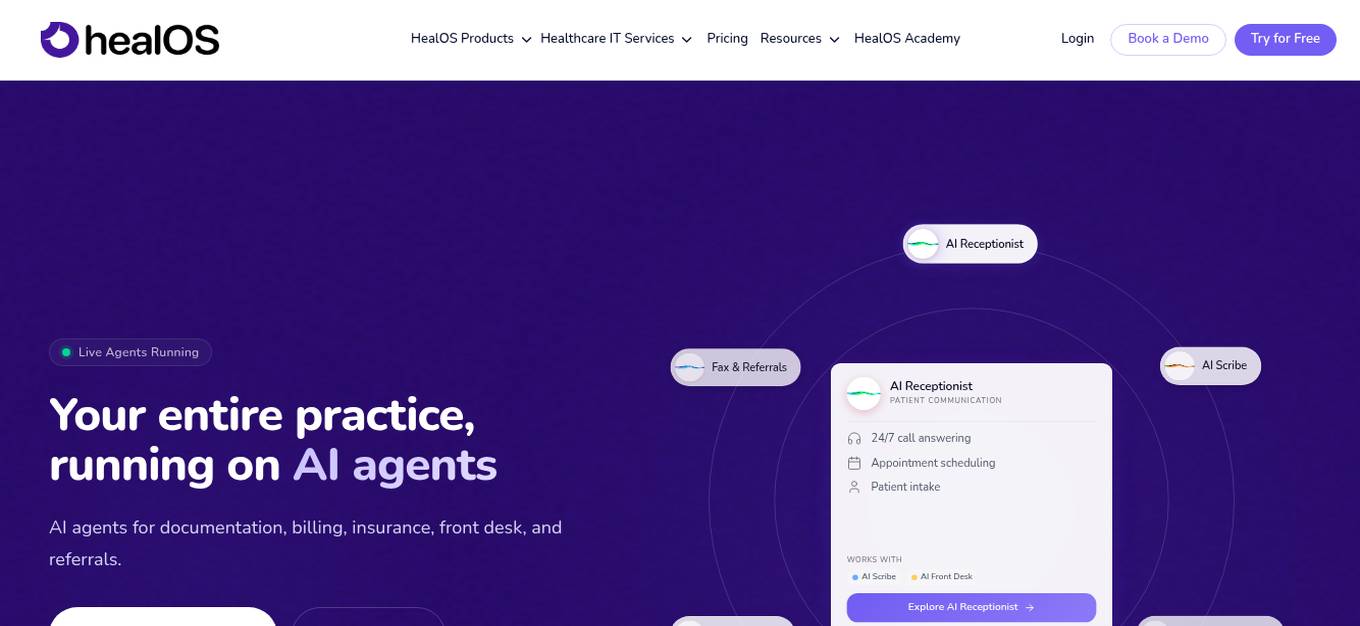
HealOS
HealOS is an AI-powered healthcare automation platform that deploys specialized AI agents to handle various tasks such as clinical documentation, benefits verification, prior authorization, front desk calls, fax/referral management, and billing. It aims to reduce administrative burden, improve revenue, and enhance patient care by leveraging artificial intelligence technology. HealOS is trusted by healthcare leaders and has proven results in powering operations for clinics, hospitals, and specialty practices nationwide.

ZEBCOIN
ZEBCOIN is an AI-powered platform that focuses on decentralized identity verification, intellectual property rights, AI-driven decentralized finance (DeFi) and micro-lending, environmental sustainability, and transparency in supply chains. It aims to leverage AI and blockchain technology to offer innovative financial solutions, promote clean energy initiatives, ensure transparency in global supply chains, and provide decentralized identity verification services. The platform also plans to launch its own blockchain (ZEB Chain) with features like an explorer, decentralized exchanges (DEX) transparency, NFT marketplace, and lending and DeFi services. ZEBCOIN aims to revolutionize the blockchain space by integrating AI technology into various aspects of its ecosystem.
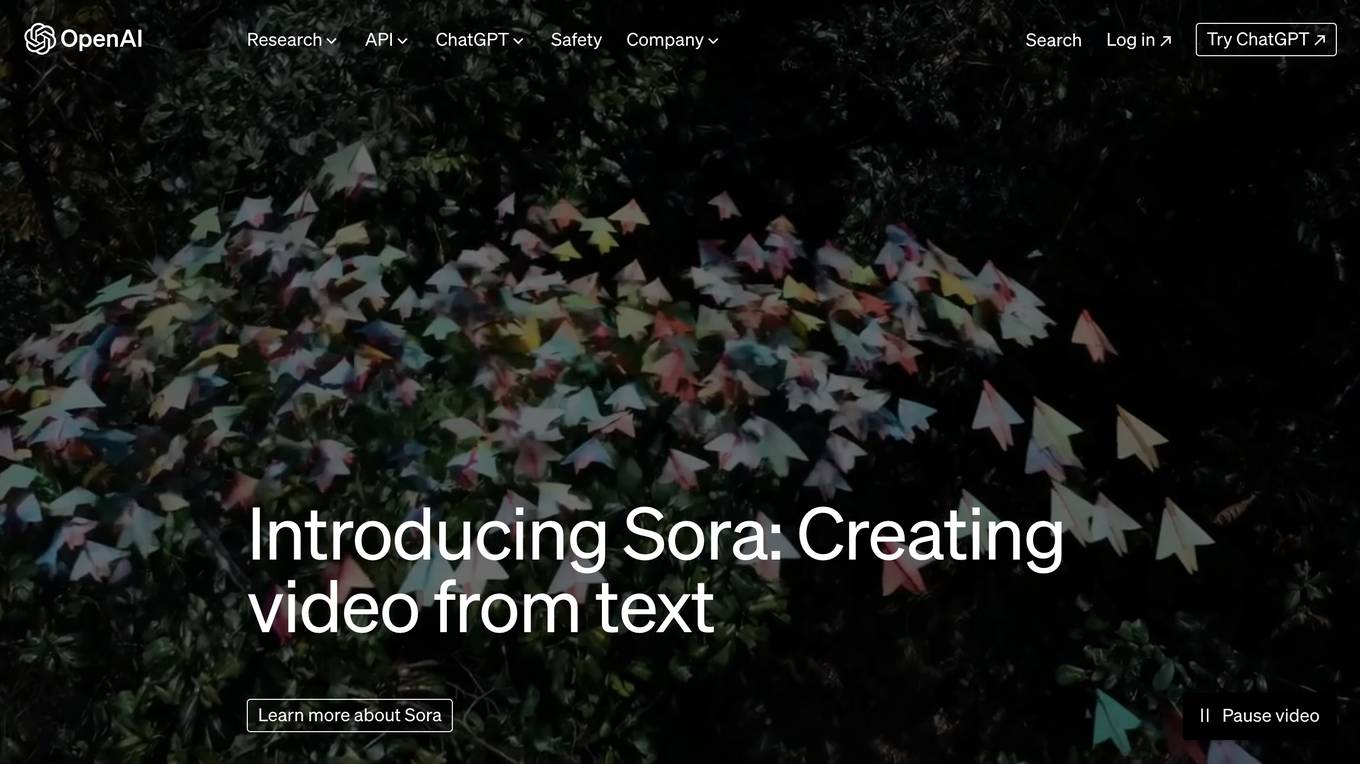
SecureVerify
The website is an AI tool that provides verification services. It helps users verify their access to certain websites by completing a verification process. The tool ensures security and authenticity by confirming the user's identity before granting access. It requires users to enable JavaScript and cookies to continue the verification process.
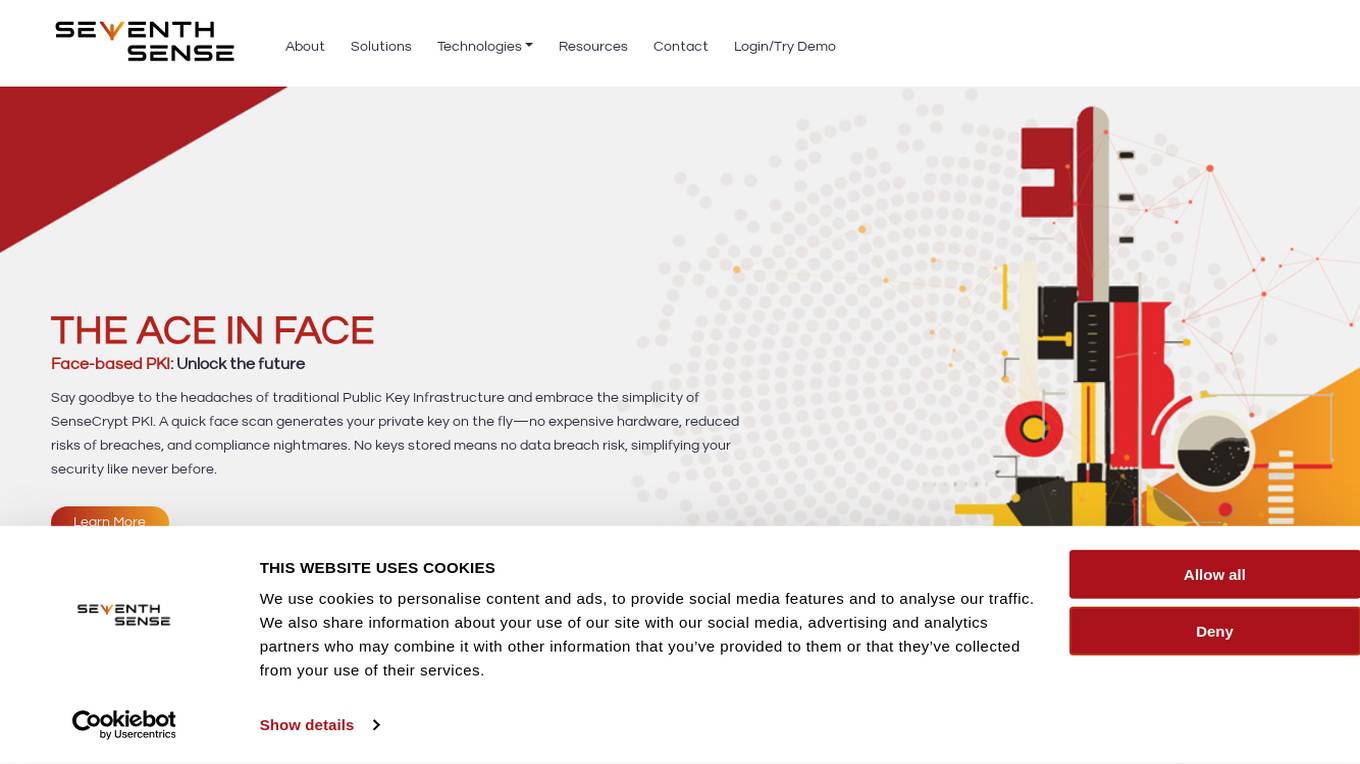
Seventh Sense
Seventh Sense is an AI company focused on providing cutting-edge AI solutions for secure and private identity verification. Their innovative technologies, such as SenseCrypt, OpenCV FR, and SenseVantage, offer advanced biometric verification, face recognition, and AI video analysis. With a mission to make self-sovereign identity accessible to all, Seventh Sense ensures privacy, security, and compliance through their AI algorithms and cryptographic solutions.

Kupid.ai
Kupid.ai is an AI-powered security verification tool designed to protect websites from malicious bots. It utilizes advanced algorithms to verify user authenticity and prevent unauthorized access. By enabling JavaScript and cookies, users can seamlessly navigate through the verification process and ensure a secure online experience. Kupid.ai is a reliable solution for website owners looking to enhance their security measures and safeguard against potential cyber threats.
2 - Open Source Tools
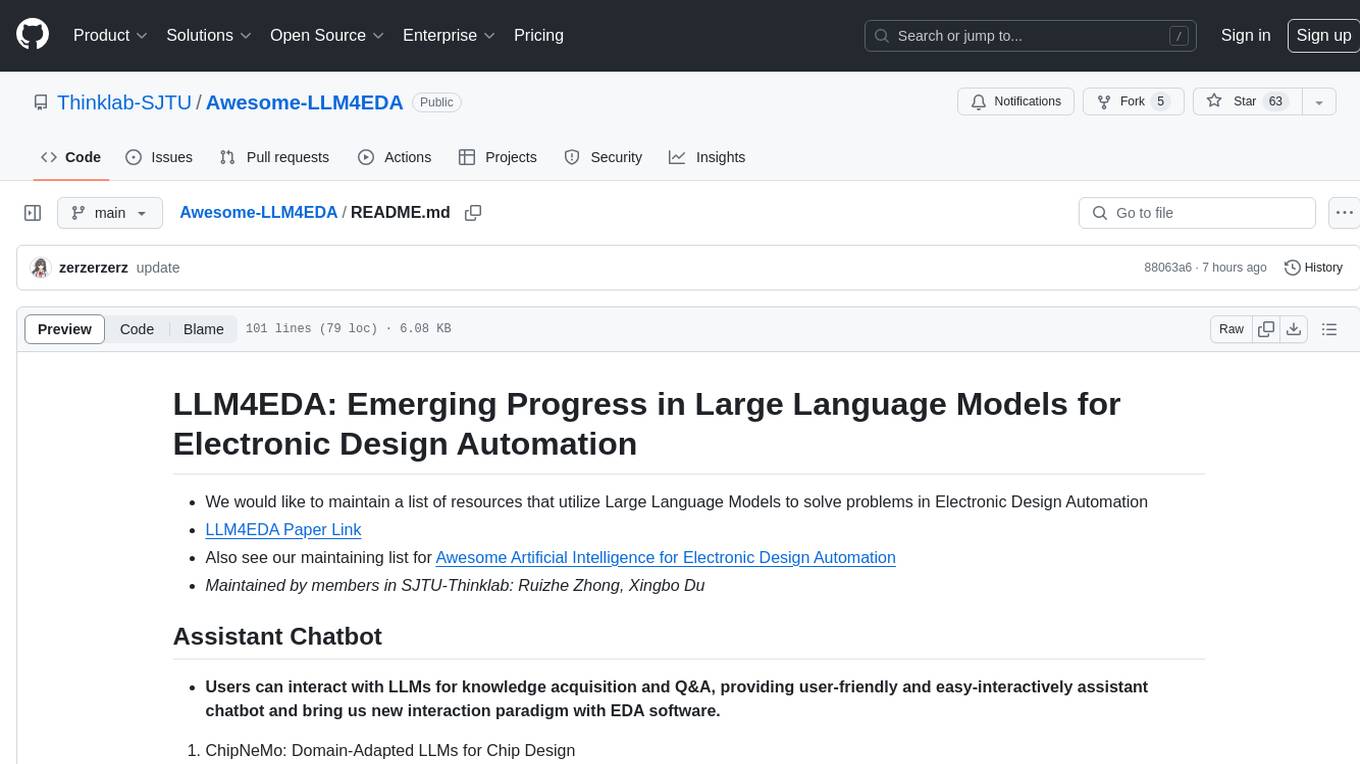
Awesome-LLM4EDA
LLM4EDA is a repository dedicated to showcasing the emerging progress in utilizing Large Language Models for Electronic Design Automation. The repository includes resources, papers, and tools that leverage LLMs to solve problems in EDA. It covers a wide range of applications such as knowledge acquisition, code generation, code analysis, verification, and large circuit models. The goal is to provide a comprehensive understanding of how LLMs can revolutionize the EDA industry by offering innovative solutions and new interaction paradigms.
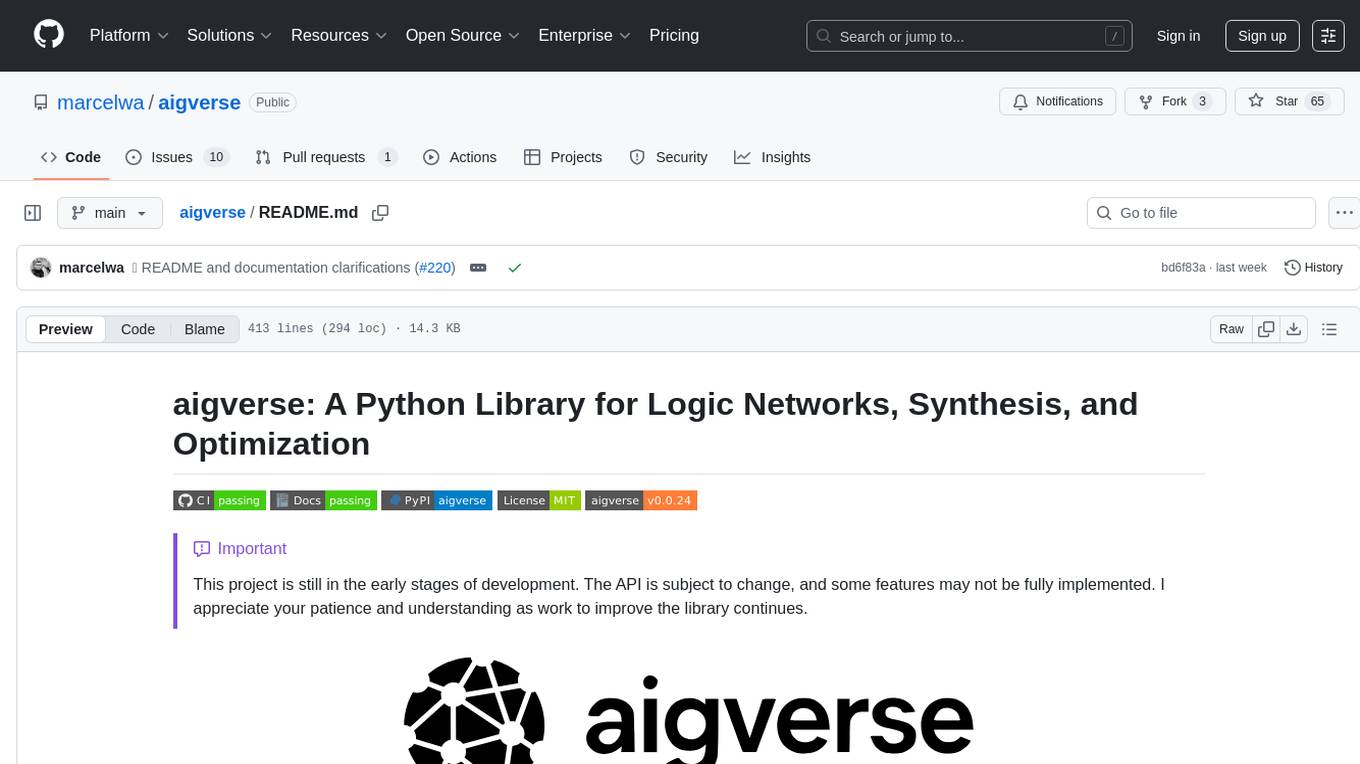
aigverse
aigverse is a Python infrastructure framework that bridges the gap between logic synthesis and AI/ML applications. It allows efficient representation and manipulation of logic circuits, making it easier to integrate logic synthesis and optimization tasks into machine learning pipelines. Built upon EPFL Logic Synthesis Libraries, particularly mockturtle, aigverse provides a high-level Python interface to state-of-the-art algorithms for And-Inverter Graph (AIG) manipulation and logic synthesis, widely used in formal verification, hardware design, and optimization tasks.
15 - OpenAI Gpts

Singularity Chisel Code Architect
Your digital design & verification guide. The conversation data will not be used for training.
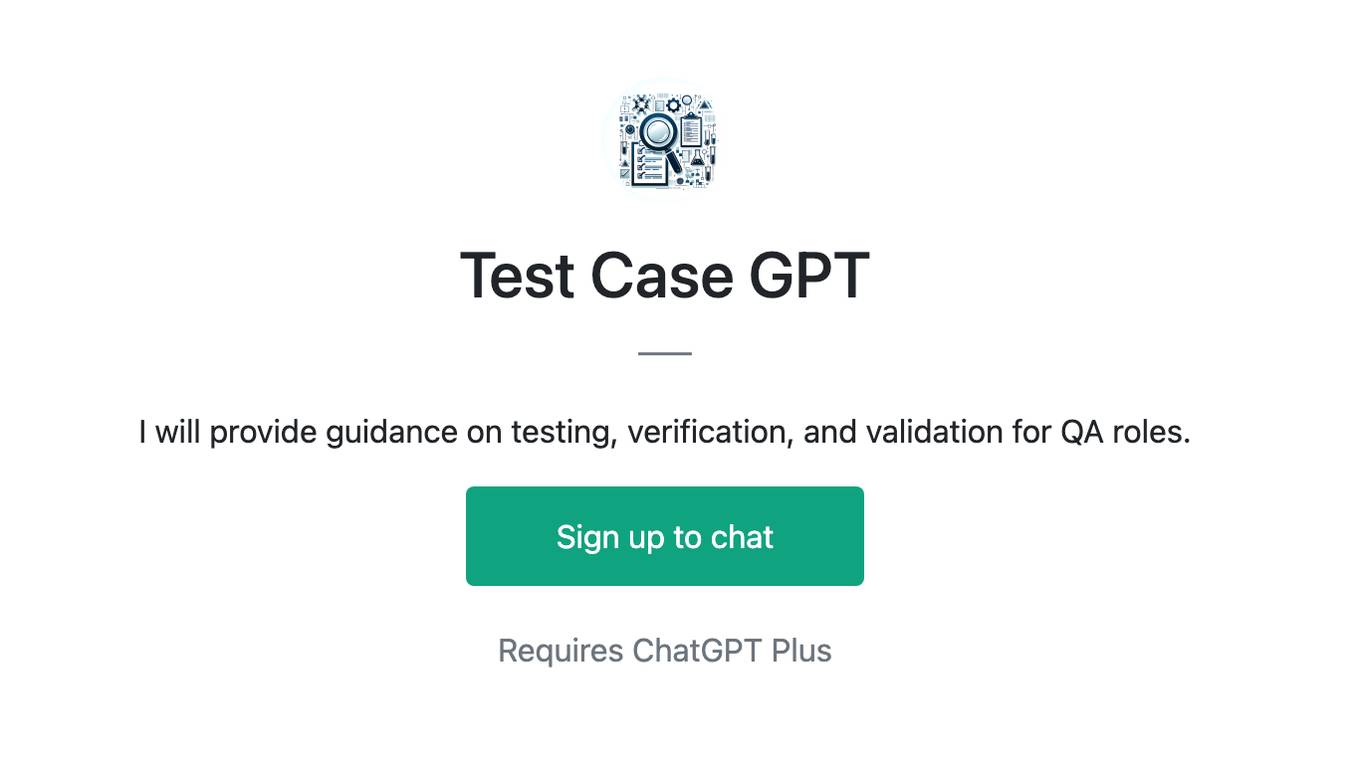
Test Case GPT
I will provide guidance on testing, verification, and validation for QA roles.
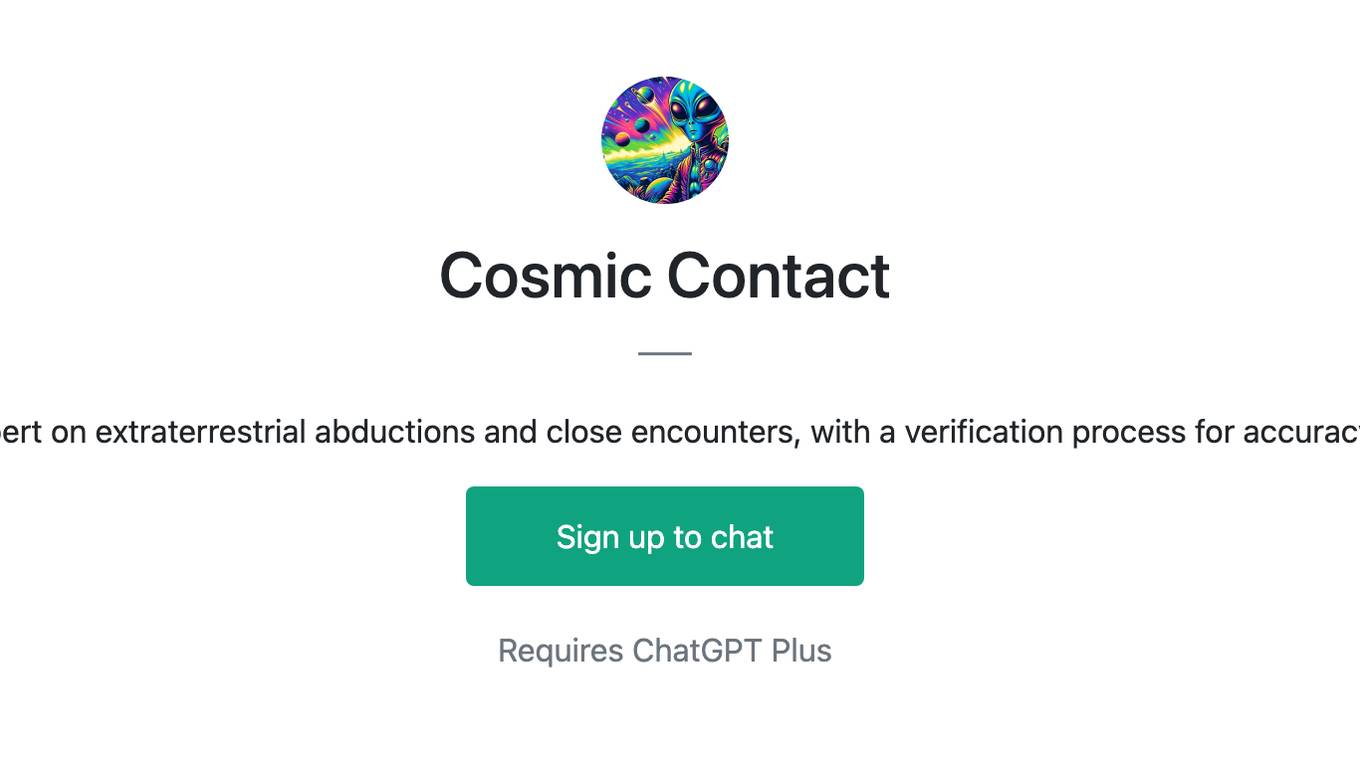
Cosmic Contact
Expert on extraterrestrial abductions and close encounters, with a verification process for accuracy.
![VitalsGPT [V0.0.2.2] Screenshot](/screenshots_gpts/g-cL1rJdm11.jpg)
VitalsGPT [V0.0.2.2]
Simple CustomGPT built on Vitals Inquiry Case in Malta, aimed to help journalists and citizens navigate the inquiry's large dataset in a neutral, informative fashion. Always cross-reference replies to actual data. Do not rely solely on this LLM for verification of facts.

Media Verify
Verifying Reality: I scrutinize text messages and media to reveal the real story, defeating misinformation and fake news.

Chinese Brand Verify
Verify whether the Chinese brand you are interested in is mainstream by searching three Chinese business media with more than 10 million subscriptions. If you don't get any information, the "Chinese brand" is not well known in China.
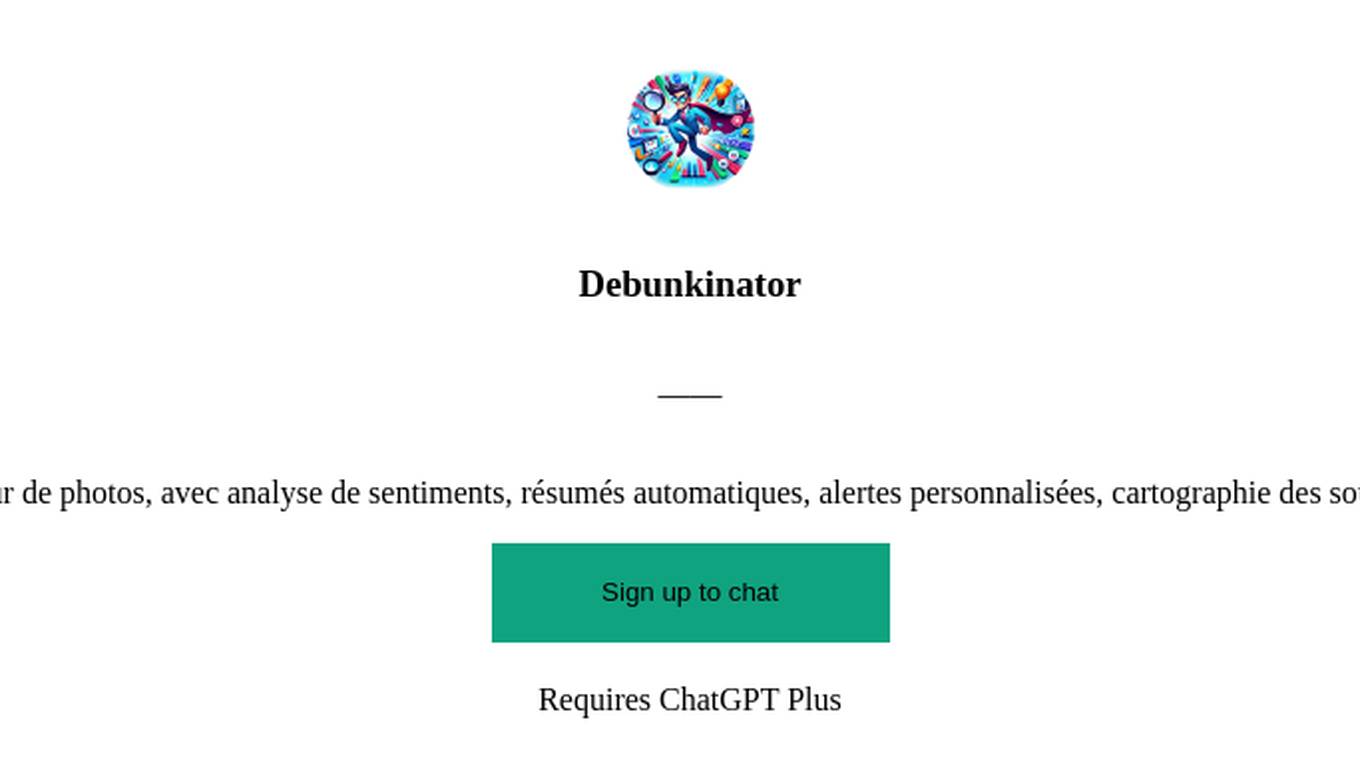
Debunkinator
Débunker d'infos, vérificateur de photos, avec analyse de sentiments, résumés automatiques, alertes personnalisées, cartographie des sources et éducation aux médias.
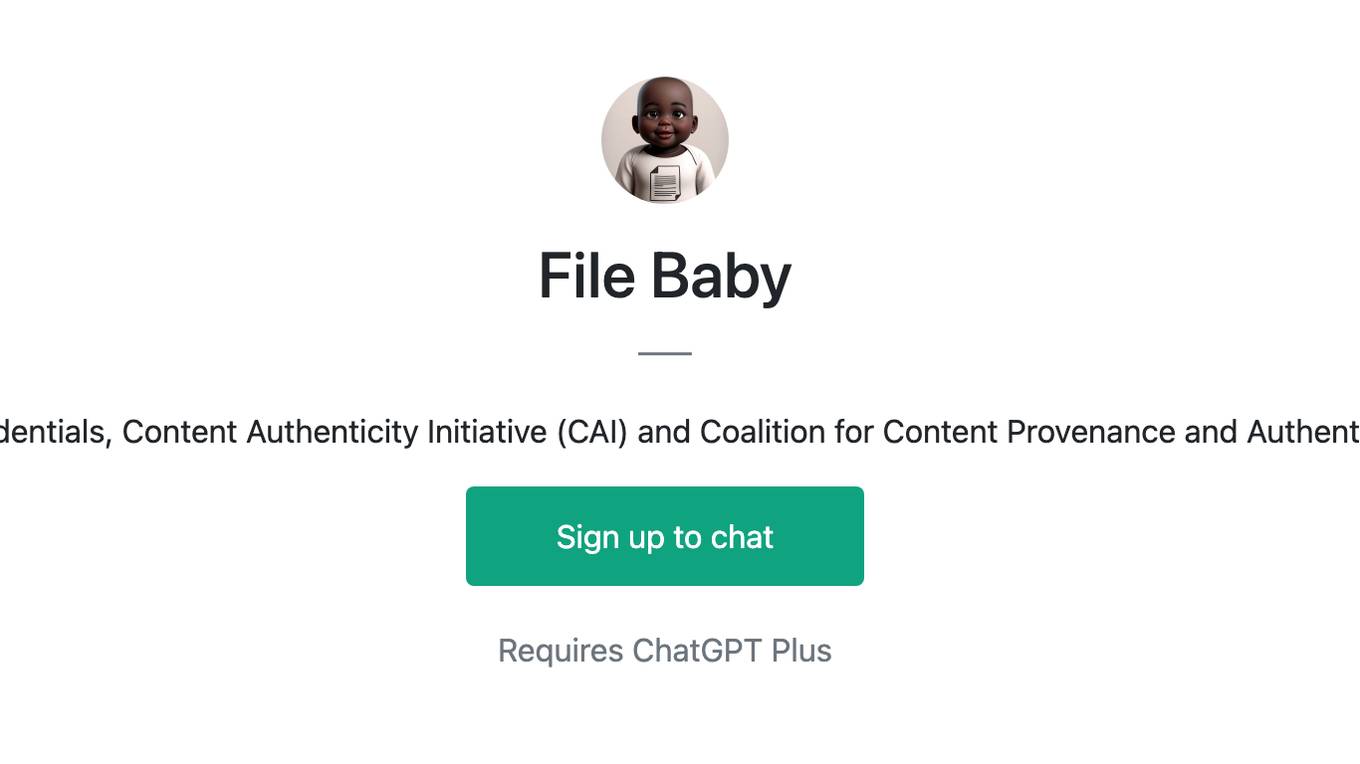
File Baby
Your guide to Content Credentials, Content Authenticity Initiative (CAI) and Coalition for Content Provenance and Authenticity (C2PA) at File.Baby.

Andrew Darius' Journalist
A journalistic GPT that reports news, writes stories, and verifies information.
